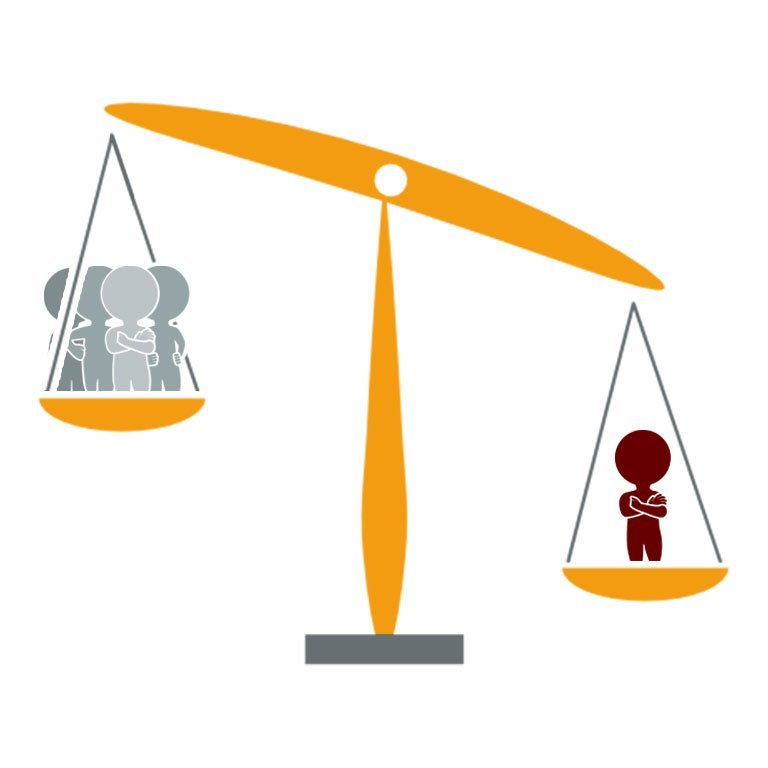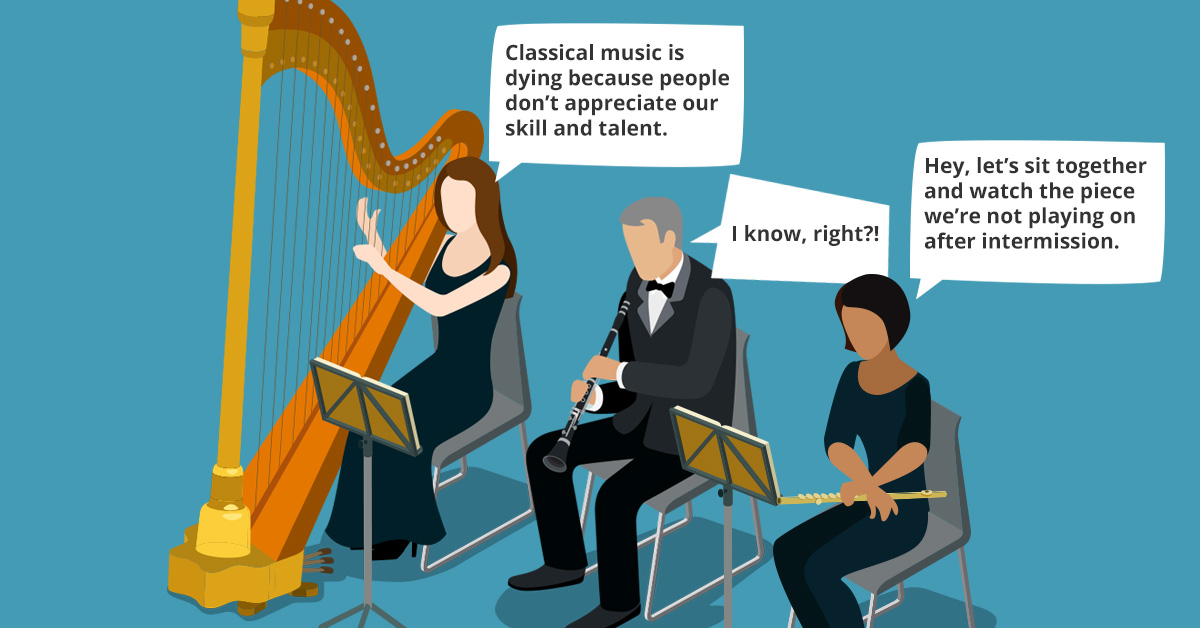If you have any interest in driving down comps while filling up full price seats, there are two articles you simply must read.
The first is from violinist Holly Mulcahy* in a Neo Classical post from 6/15/2018 where she talks about the vast untapped potential influencer marketing can have on improving meaningful audience development activities.
Simply put, Mulcahy is the model of what a classical music influence can look like. Given the amount of time spent traveling to her regular concertmaster work and solo engagements, she frequently chronicles her airport encounters with existing and soon-to-be patrons to her orchestra (spoiler: she sells a lot of tickets).
” And the more I thought about my own influence, mixed with my general dislike of comp tickets, I started to wonder why the classical music industry couldn’t start to follow the lead of hotels, car companies, clothing companies, etc. If we had select people who would check-in, share a post on Instagram, Tweet to their large following, would that be worth a comp? I think so. The trick is to find the right influencers. Not just people jumping through a hoop to get in to see a concert and checking off a box. Actual influencers who would sincerely convey how much they enjoyed the orchestral experience.”
The next must-read article is one that inspired Mulcahy’s post. Written by Taylor Lorenz for the 6/13/2018 edition of The Atlantic, the article takes a deep dive into how much influencer marketing is changing the luxury hotel and resort industry.
Lorenz’s article is like looking into a possible future for the performing arts sector if it arrives at a similar “good problem to have” facing today’s hotel/resort industry.
What’s especially interesting are the sections where we hear from established influencers and how they approach their role inside that industry with professionalism and precision.
Simply put, they see the win-win of value exchange and work as hard selling that to organizations as they do influencing their followers.
Other influencers have gotten even more creative with the services they offer. Zach Benson, who owns a network of travel Instagram accounts and who says he has gotten more than 200 nights for free over the past year and a half, touts his background in digital marketing when he approaches hotels. Along with the traditional Instagram posts and Stories, Benson offers to work with a hotel’s digital marketing arm to improve the brand’s in-house social media accounts.
“We really want to help people and make their companies and hotels better,” he said. “We know that just doing a couple Instagram posts for them isn’t really going to help them that much.” During his travels, Benson hosts boot camps for hotel social media teams, where he trains employees on things like Facebook ads and Instagram promotion.
Read The Article At The Atlantic
A Brave New World
In order to reach a point where influencers actually want to engage with the nonprofit performing arts sector, a number of things will have to change.
Mulcahy’s post provides the first crucial clue: look inward.
Low hanging fruit include an organization’s own artists (hello, individual agreement overscale as recognition?) and creating new valuation scales for guest artists that take social media influence into consideration once artistic standards have been met.
From there, moving on to existing super-fans among the existing patron base (like Jonathan Becker), is the next logical step. Once they’ve used those experiences to refine and improve the overarching concert experience, it’s time to begin attracting influencers from the broader entertainment community.
* Full Disclaimer mode: Holly is my wife, but if you’re a regular reader, you knew that already 😊


